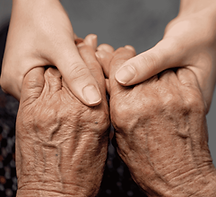

We’re Building Something Great!
Thanks for visiting Underwood Legal, LLC. Our new website is currently under construction, but we’re still here to help you with estate planning, wills, trusts, and probate services in Madison, WI and surrounding areas.
Our Services
What Our Clients Say
Rachael S.
“If you are thinking of creating an estate plan but fear it will be too intimidating, I strongly recommend you give Matthew Underwood a call. From the first meeting, Matthew put my parents at ease, respectfully listening to their specific needs, clearly explaining complex legal structures, and encouragingly answering their many questions. He prepared their tailored estate documents quickly and precisely, adding many provisions to protect my parents and the family, and answered all our questions promptly. (One day I sent him 27 detailed questions and he sent me comprehensive replies within a few hours.) Through the entire process, he made us feel as though we were his highest priority, and he took as much care with my parents as I imagine he would take with his own. I was grateful for this compassion. Matthew is an intelligent lawyer and a genuinely kind person. Working with him was a joy. My family highly recommends him."
Norm D.
"I needed to update my estate plan, and Matthew was recommended to me by a respected pre-planning funeral advisor. Matthew is kind, personable, and professional. I was comfortable working with him, and he and his team made the entire process smooth from start to finish. I am impressed by his attention to detail and his degree of thoroughness. I intend to have Matthew remain as my estate planning attorney for any future changes or updates to my plan, and highly recommend him to anyone in need of estate planning services."
Jason K.
“We recently worked with Matt completing our family's estate plan. For years we had 'gum' filling the hole in our boat. We knew this gum needed to be replaced, so this year Matt helped us put an amazing plan in place.
Matt took the time to really listen to our needs and objectives. We felt he truly understood us and what is important to our family. We went through several rounds of revisions, updates and edits before everything was exactly in alignment with our vision.
Matt does a great job explaining complex concepts in simple, easy to understand language. He uses visuals to help 'connect the dots'.
We felt we received an extremely good value for the costs. We sleep well at night now after going through Matt's process.
Our family highly recommends Matt and his team. They've helped us with not only our estate plan, but also reviewing business contracts. They'll be our first call anytime we need legal advice or expertise!”
Cassie S.
“My husband and I recently completed estate planning with Matt & can't say enough good things about the entire process! Estate planning can be kind of overwhelming - especially when you're young & planning for multiple hypothetical scenarios. Matt kept us on track, thoroughly explaining every option until we completely understood so we could make the best decisions for our specific situation. He did this with a lot of patience, grace, & professionalism that we were truly grateful for.
He was also very flexible with scheduling each meeting and made the whole experience feel so easy! We're still finishing up everything, but have absolutely enjoyed working with Matt & Chong. So much so, in fact, that we're already in the process of asking for his help with some other matters!
Long story short, as a business owner myself, and as a client, I'd HIGHLY recommend Underwood Legal to any of my friends or family who want to work with someone who clearly knows their stuff but also cares! Thanks again, Matt & Chong!”
Our Trusted Partners & Affiliations



Contact Us
2901 West Beltline Highway, Suite 204
Madison, Wisconsin 53713
608-571-4464

.png)
.png)
.png)
.png)
.png)
.png)
.png)
.png)
.png)